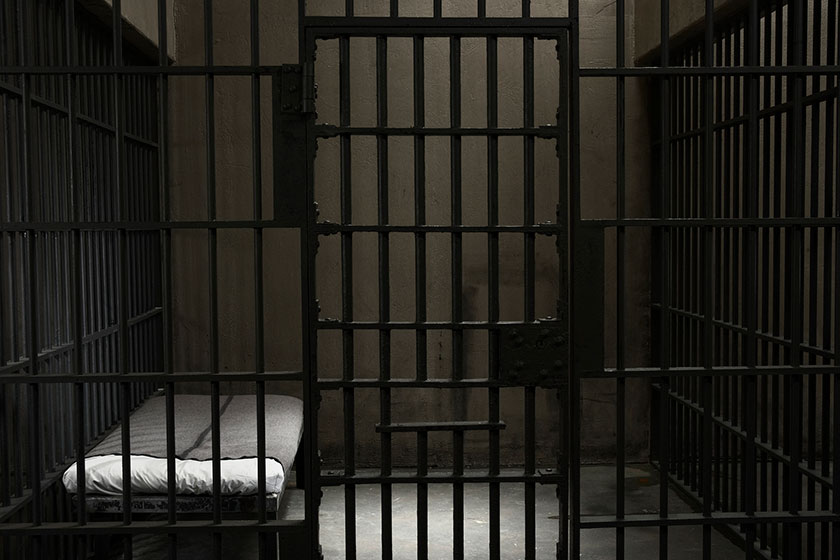A soldier may leave the battlefield, but will the battlefield leave him?

Sgt. Joseph Serna, a retired Special Forces Green Beret, was no stranger to dark places, yet he stood trembling outside the jail cell that would be his home for the night.
Over the course of three tours in Afghanistan, Serna was nearly killed on three separate occasions. He withstood the dangers of a roadside bomb and a suicide bomber. He survived another close call in an overturned truck, which landed upside down in a canal. He was the only one to make it out of the vehicle alive.
Serna may have left the battlefield, but the battlefield hadn't left him. Like many of his fellow soldiers, he suffers from post-traumatic stress disorder, or PTSD, and a sense of isolation and loneliness.
'WE'RE GOING TO TURN OURSELVES IN'
To cope with the pain, he turned to alcohol. His situation reached a boiling point in Fayetteville, North Carolina, when he was arrested and charged for driving under the influence.
Part of Serna's sentence required that he report to Judge Lou Olivera at the Veterans Treatment Court every two weeks. During one meeting, Serna admitted he had lied about an earlier urine test. Judge Olivera sentenced Serna to one night behind bars.
After his battlefield experience, Serna already feared being in tight spaces. A night alone in prison sounded like more than the veteran could bear. But he didn't want to get in more trouble, so he made his way to the courthouse to serve his sentence.
When Serna arrived at court, the judge offered to personally transfer him to the jail. "Where are we going, judge?" Serna asked, sensing something unusual about the judge's offer.
"We're going to turn ourselves in," Olivera said. Serna didn't realize it at the time, but Olivera had used the first person on purpose.
A CHILLING MOMENT BEHIND BARS
As Serna sat alone in his cell, the silence was broken moments later by an unexpected visitor: Judge Olivera. To Serna's surprise, the judge entered the cell. The door closed behind him.
"I got chills when he walked in," the retired sergeant told The Fayetteville Observer.
Serna didn't move. Olivera took a seat beside him. It was the only bunk in the cell, and naturally, Serna was confused. He remembered what Olivera had said earlier as they drove to the prison together: "We're going to turn ourselves in."
Surely the judge wasn't serious. "You are here with me for the night?" Serna asked incredulously.
The judge replied, "Yeah, that's what I'm doing."
CHANGING OVERNIGHT
For the rest of the night, Serna was not the only man in the cell. He was not the only veteran, either. Olivera had served in the Gulf War and endured his fair share of war horrors. He feared that a night alone would trigger Serna's PTSD. The battlefield is difficult for any soldier to leave behind.
Olivera and Serna swapped stories between bites of meatloaf. Olivera even gave Serna the single bunk in the cell. The judge slept on a mattress on the floor.
Literally overnight, their relationship transformed into something Serna had never imagined. All it took was having someone there—someone who saw him, not for what he did, but for who he was.
"It was more of a father-son conversation. … It was personal," Serna told The Washington Post.
REMEMBERING INCARCERATED VETERANS
The Bureau of Justice Statistics estimates that there are about 180,000 United States veterans in our prisons and jails. At Prison Fellowship, we believe that everyone was created with dignity and purpose—including men and women in prison.
Honoring the dignity of prisoners begins with remembering them. To remember prisoners means not to overlook them for what they've done but to see them for who they are—men and women made in the image of God.
On November 11, our country will observe Veterans Day, a day to honor America's veterans for their patriotism, love of country, and willingness to serve and sacrifice for the common good. But let's not overlook the thousands of incarcerated veterans who served our country, like Sgt. Joseph Serna.
OTHER STORIES YOU MIGHT LIKE
PRISONERS TRAIN HELPING HOUNDS FOR VETERANS
At Puppies Behind Bars, prisoners train helping hounds for veterans like Chris Goehner. Chris's life has changed thanks to his service dog Pelé.
BY THE GRACE OF GOD: HOW LÁZARO FOUND RICHES BETTER THAN MONEY
Lázaro hoped to get rich quick, but the love of money is the root of all kinds of evil.
DID YOU ENJOY THIS ARTICLE?
Make sure you don' t miss out on any of our helpful articles and incredible transformation stories! Sign up to receive our weekly newsletter, and you' ll get great content delivered directly to your inbox.
Your privacy is safe with us. We will never sell, trade, or share your personal information.